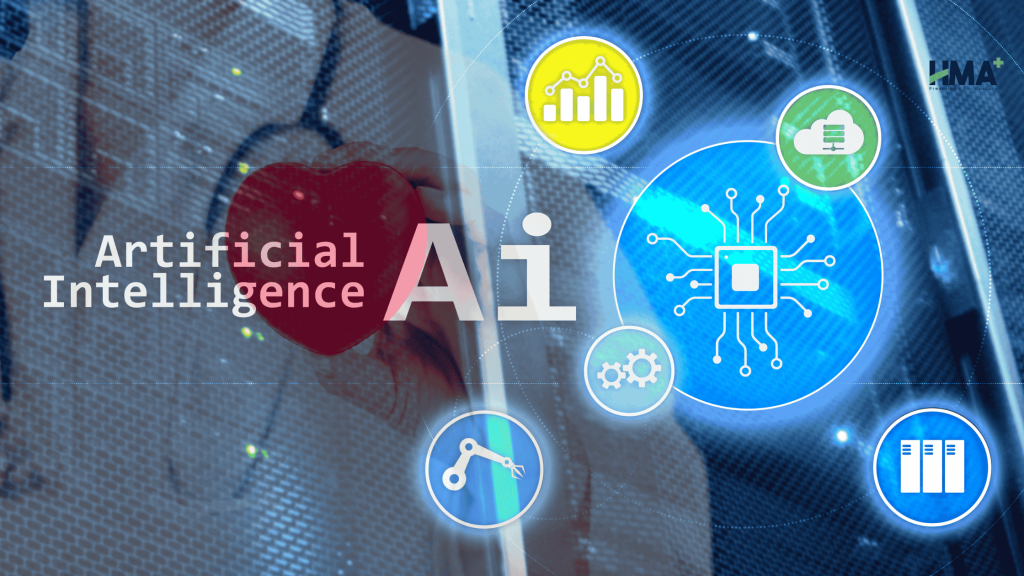
Artificial Intelligence (AI) is no longer just a futuristic concept—it’s actively reshaping healthcare today. Across hospitals, clinics, and medical centers worldwide, AI is helping deliver faster diagnoses, more tailored treatments, and more efficient operations. For the healthcare industry in the Gulf countries, where innovation is key to meeting ambitious healthcare goals, AI offers tremendous promise.
We’ll explore how AI is transforming patient care and healthcare systems overall, and share why adopting AI-driven strategies—both clinical and marketing—can help providers in the Gulf region reach the right patients at the right time.
AI is driving a quiet revolution in healthcare by making services more accurate, personalized, and accessible. Here’s how:
Time is critical in healthcare. AI systems can rapidly review medical images like X-rays, CT scans, and MRIs, highlighting concerns that might be missed during manual reviews. Algorithms trained on thousands of cases learn to recognize early signs of diseases such as cancers, neurological conditions, or cardiac issues, often before noticeable symptoms appear.
In some studies, AI tools have matched or even exceeded human specialists in spotting subtle patterns, enabling earlier intervention and improving patient outcomes.
AI’s ability to analyze a wide range of patient data—including genetic markers, medical histories, and lifestyle factors—means treatment plans can be tailored like never before. This personalized approach, often called precision medicine, ensures therapies are better aligned to individual patients, which is especially vital in managing chronic conditions or complex diseases.
For healthcare providers in the Gulf region, where lifestyle-related illnesses such as diabetes and cardiovascular diseases are prevalent, AI-enabled personalization can lead to more effective, long-term care strategies.
Doctors and nurses often spend substantial time on documentation, billing codes, insurance processing, and appointment management. AI can automate many of these routine administrative tasks. Smart digital systems can transcribe consultations, update patient records automatically, and help schedule follow-ups.
This reduces paperwork fatigue, lowers administrative costs, and frees healthcare professionals to focus on what truly matters: direct patient care.
AI-powered surgical systems are assisting medical teams by providing data-driven insights during procedures, guiding instrument movements, and ensuring precision. These technologies help reduce risks, minimize tissue damage, and often result in faster recovery times for patients.
In Gulf countries aiming to grow their reputation as centers for advanced medical procedures, adopting such technologies can improve surgical success rates and patient trust.
AI tools can sift through patient histories and current health data to predict who might be at risk of complications or needing a hospital readmission. This helps healthcare teams plan proactive follow-ups, adjust care plans, and allocate resources more efficiently.
By preventing avoidable hospital stays, hospitals and clinics can improve patient outcomes while also reducing strain on facilities—an important goal for growing healthcare systems in the Gulf.
AI-powered chatbots and virtual assistants are becoming more common in healthcare. These tools can answer patients’ frequently asked questions, help them understand pre- and post-procedure instructions, and even triage concerns to determine if a doctor’s visit is necessary.
Such digital touchpoints improve patient satisfaction and engagement while reducing call volumes and wait times.
The global healthcare industry faces a significant challenge: a projected shortage of over 11 million healthcare workers by 2030. AI bridges this gap by automating screenings, data analysis, and even initial patient interactions.
This is especially vital for Gulf countries with rapidly growing populations and ambitious goals to deliver high-quality care to citizens and residents alike. By leveraging AI, clinics and hospitals can serve more patients without compromising care standards.
AI is making healthcare faster, more precise, and more personalized. It speeds up diagnostics, tailors treatments to individual patients, reduces administrative tasks, and enhances patient engagement through virtual tools.
AI in healthcare includes a broad range of applications—from interpreting medical images and predicting patient risks to automating back-office work and powering virtual health assistants. It’s fundamentally about using technology to support, not replace, healthcare professionals.
AI analyzes massive datasets to identify patterns, predict health issues, and recommend interventions. It also handles routine administrative work, helping medical staff focus more on patient care
The main role of AI is to augment human expertise. It provides insights and automates tasks that free up time and resources, enabling healthcare providers to deliver safer, more efficient, and more personalized care.

The Gulf region has set high benchmarks for healthcare quality and innovation, aiming to become a global destination for advanced medical care. But with rising patient volumes, rising expectations, and a strong push toward digital transformation, integrating AI isn’t just beneficial—it’s becoming essential.
Whether you’re managing a large hospital network or a specialized clinic, AI can help streamline your operations, improve patient outcomes, and support national health visions.
While AI is revolutionizing clinical care, it’s also changing how healthcare organizations connect with patients. At HMA Digital Marketing Agency, we specialize in helping healthcare providers in the Gulf attract, engage, and convert the right patients—at the right time.
We leverage data-driven marketing strategies that complement your clinical AI tools. From AI-enhanced audience targeting to smart patient engagement campaigns, we ensure your services reach those who need them most, efficiently and ethically.
Here’s how we can help:
✅ Develop digital marketing campaigns that use AI insights to target patients by condition, location, and need.
✅ Build intelligent patient journey maps that guide people from awareness to appointment.
✅ Create content strategies that position your practice or hospital as a leader in advanced, AI-driven care.
✅ Set up performance dashboards so you can see how your marketing—and your investment—delivers real patient results.
AI is not here to take the place of skilled healthcare professionals—it’s here to amplify their capabilities. By adopting AI responsibly, hospitals and clinics can make care safer, more precise, and more accessible.
For healthcare leaders in the Gulf, now is the time to integrate these technologies not just into your clinical operations, but also into your marketing and patient engagement strategies.
This combined approach ensures that you deliver exceptional care and that the patients who need your services most can find and trust you.